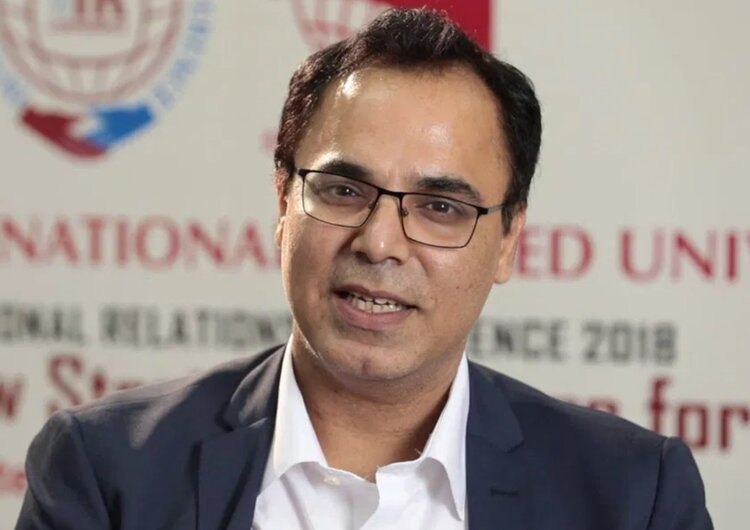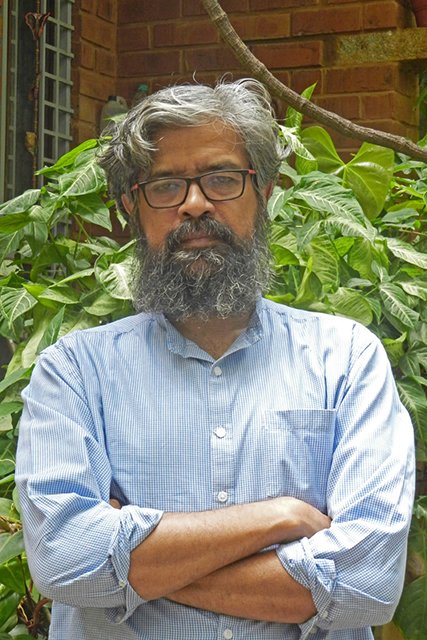Post Graduate Programme in Public Policy
The PGP is a comprehensive 48-week hybrid programme tailored for those aiming to delve deep into the theoretical and practical aspects of public policy. This multidisciplinary course offers a broad and in-depth range of modules, ensuring students get a well-rounded learning experience. The curriculum is delivered online, punctuated with in-person workshops across India.
This programme emphasises both academic knowledge and hands-on experience, blending conceptual learning with policy simulation exercises. Beyond the online webinars, students also get the added advantage of engaging with Takshashila's esteemed subject matter experts and its vast alumni community.
Towards the end of the programme, students will work on an individual Capstone project, allowing them to pursue empirical research in their area of policy interest. Overall, this intensive programme will arm you with all the essential skills for policymaking, analysis, persuasion, and communication, preparing you for your chosen career path in public policy.
Timeline and Key Dates
Fee Structure
The programme fee for individuals enrolling in the 10th cohort will be ₹1.95 lakh (plus GST). Fees, once paid, are non-refundable. Students will have the chance to defer their admission to one subsequent batch.
Limited financial scholarships are available for talented individuals and in exceptional cases. Admissions are conducted on a rolling basis, but early applicants will have a significant advantage in availing scholarships.
Current Cohort
Programme Begins
14 June 2025
Early Bird Deadline (10 percent scholarship)
01 May 2025
Application Deadline
01 June 2025
Workshop - I
28, 29, 30 & 31 August 2025
Workshop - II
9, 10, 11 & 12 October 2025
Workshop - III
13, 14 & 15 February 2026
Workshop - IV
9 & 10 May 2026
Next Cohort
Programme Begins
20 June 2026
Early Bird Deadline (10 percent scholarship)
01 May 2026
Application Deadline
01 June 2026
Workshop - I
10, 11, 12 & 13 September 2026
Workshop - II
22, 23, 24 & 25 October 2026
Workshop - III
5, 6, 7 & 8 February 2027
Workshop - IV
24 & 25 April 2027
Why Study with Us?
Ideal for working professionals seeking to delve into a public policy career while maintaining their current jobs.
Gain expertise in different aspects of public policy, enhancing your intellectual comprehension of the subject.
Acquire essential core skills, including policy analysis, logical reasoning, effective communication, and persuasive abilities.
Connect with prominent policy practitioners and industry experts, benefiting from their insights and expertise.
Application Process
The admission process consists of two stages: first, the submission of applications, followed by an interview with a panel for the shortlisted candidates.
Who is Eligible to Apply?
Individuals with an undergraduate degree in any field are welcome to apply. The eligibility requirement for the PGP includes a minimum of two years of work experience. However, having this qualification is preferred, not obligatory.
Curriculum
The PGP is offered through Takshashila Institution's unique networked learning approach, which combines live online webinars, face-to-face workshops, individual study, quizzes, assignments, group tasks, and a culminating capstone project.
Spanning 48 weeks, Takshashila’s PGP is structured into three terms, each lasting 14 weeks. In both Term 1 and Term 2, participants will engage in six courses, attend one workshop, and participate in one masterclass. Term 3 consists of two courses, a masterclass, and the capstone project. A 2-3 week break is scheduled between each term.
Constitutional Structure and Policy Making
The module offers a comprehensive introduction to the legal aspects of policy making.
-
Constitutional Structure
The Legislature in Detail
Dynamics between the Governments at the Union, State and Local Levels
Fundamentals of Public Policy
The module will help students unpack policy making and key policy processes in the context of politics.
-
Introduction to Public Policy Analysis
Nations, States and Governments
Democracy, Republic, and Constitution; Paradoxes of Policy Making in India
Decision Making Models
Failures in Public Affairs - Market failures
Failures in public affairs - Govt failures and social imbalances
Effecting Change: Change Frameworks
International Relations and Foreign Affairs
The module introduces the concepts of the international system, geopolitics, and diplomacy, while also emphasising the significant role of technology in shaping international relations.
-
The International System
Understanding Geopolitics
Tools of Statecraft: Foreign Policy and Diplomacy
Technological and Social Upheaval in International Relations
Microeconomics 2
The module further elaborates on Microeconomics and its application to public policy. It covers topics such as market and government failure in greater detail.
-
Market Failures
Public Goods
Externality
Government Intervention in the Market: Subsidies and Cash Transfers
Government Intervention in the Market: Tax, Price Ceilings, Quotas, and Tariffs
Behavioural Economics
How Nations Prosper
The module aims to guide students through policy issues in the economic domain, covering key debates from the last 10-15 years.
-
Setting the Contemporary Indian Economy in the Global Context
Economic Institutions
Jobs and Employment
Government Revenue and Expenditure
Private Revenue and Expenditure
How to Write an Op-Ed
The aim of this writing course is to equip you with the skills to compose an op-ed focusing on a policy issue.
-
The Importance of Simple Writing
The Sound of Words
The Building Blocks of Writing
Write That Op-Ed
Writing a Policy Brief
This module offers an overview of the policy analysis process and assists students in crafting policy briefs.
-
Introduction and Policy Definition
Assembling the Evidence
Constructing the Alternatives
Selecting the Criteria
Projecting the Outcomes
Confronting the Trade-offs
Deciding the Final Policy Solution
Telling Your Story
Ethical Reasoning in Public Policy
The module equips students with concepts, frameworks, and scenarios that encourage them to contemplate and address ethical dilemmas.
-
Foundations for ethical reasoning
Problem solving
Trolley problem
The value of life
Microeconomics 1
The module focuses on the fundamentals of microeconomics and applies them to specific areas of public policy.
-
Introduction to Economic Reasoning
Price, Value, and Cost
Law of Demand
Trade and Comparative Advantage
Market Structure
Macroeconomics
The module covers fundamental concepts in macroeconomics that directly relate to the process of policy making.
-
Measuring Economic Activity
Growth and Fluctuations
Capital Controls
Monetary Policy
Exchange Rate Regimes and the Impossible Trinity
Fiscal Policy
Introduction to Public Finance
The module introduces students to the fundamentals of public finance in the Indian context.
-
Introduction to Public Finance
Macroeconomics of Public Finance
Tax Policy and Reforms in India: Taxation and Development
Fiscal Decentralisation and Fiscal Federalism
Quantitative Analysis
The module provides an introduction to empirical analysis techniques utilised by economists and public policy experts for testing theories using observational or survey data.
-
Introduction to Descriptive Analysis
Evaluating Empirical Work
Methods to Estimate Causal Effects -Randomised Controlled Trials and Regression Discontinuity Design
Methods to Estimate Causal Effects Instrumental Variables Approach and Differences-in-Differences Approach
The Art and Science of Economic Policy
The module offers insight into how economic policy functions at the crossroads of politics and economics.
-
Foundations: Purpose of Government
Diagnosing the Indian Experience
The Science of Economic Policy
The Art of Economic Policy
The Public Policy Process
Applying the Ideas
Constitutional Assembly Debates
The goal of this module is to enhance understanding of the Constitution's creation process and delve into the concept of India as a nation formed through negotiation.
Faculty
-

Nitin Pai
Nitin Pai is co-founder and director of the Takshashila Institution, an independent centre for research and education in public policy. His current research includes the geopolitics of the Indo-Pacific; defence economics and the politics of radically networked societies.
-

Narayan Ramachandran
Narayan Ramchandran is one of Takshashila’s co-founders. He worked on Wall Street (mostly at Morgan Stanley) for over 20 years, most recently as head of global emerging market investing and then country head of Morgan Stanley in India.
Narayan’s column in Mint can be found here. -

Pranay Kotasthane
Pranay Kotasthane is deputy director of the Takshashila Institution. His current research includes high tech geopolitics and the politics of radically networked societies. He teaches public policy, international relations, and public finance at our graduate and post-graduate programmes.
-

Sarthak Pradhan
Sarthak is an Assistant Professor at the Takshashila Institution. He teaches economic reasoning and researches public finance. Before his foray into the public policy domain, he worked as an educator and a telecom engineer. He has completed Takshashila's PGP in public policy and holds a dual degree from BITS Pilani. Sarthak has completed the Post Graduate Programme (PGP) in Public Policy from the Takshashila Institution
.
-

Manoj Kewalramani
Manoj Kewalramani is a Fellow-China Studies at The Takshashila Institution. His research focuses on Chinese politics, foreign policy and approaches to new technologies. Manoj is the author of Smokeless War: China’s Quest for Geopolitical Dominance.
-

Anupam Manur
Anupam Manur is a Professor of Economics at the Takshashila Institution. He previously worked as a Research Associate at the Indian Institute of Management – Bangalore, after completing his Masters in International Business (Economics) from Lancaster University. He is the Managing Editor of Indian Public Policy Review.
-

Ameya Naik
Ameya Naik is an Associate Fellow (non-resident) with the geostrategy programme at the Takshashila Institution. His research covers Indian foreign policy, diplomacy, international organisations, and international law. He also co-teaches the Introduction to Public Policy Analysis course as part of the Policy School.
-

Adtiya Ramanathan
Aditya is an Associate Fellow with the Takshashila Institution. A journalist by training, he has previously worked at Mint and as a freelancer. He has also researched and written on colonial-era Indian military history.
-

Mihir Mahajan
Mihir Mahajan is an Adjunct Fellow at Takshashila and is the Chief of Staff at IP Spring LLC, a boutique US law firm that specializes in intellectual property matters. Mihir’s experience includes developing IP strategy, managing patent portfolios, patent transactions, and preparing and prosecuting patent applications.
His research interests are competition policy, intellectual property, privacy, and microeconomics.
-

Shruti Vishwanathan
Shruti Viswanathan is the founder of The Equals Project. She is a lawyer and policy professional with over 13 years of experience working with national and international organisations in building just, inclusive societies. She is a graduate of the National Law School of India University, Bangalore. Shruti has a Masters from the Fletcher School of Law and Diplomacy. She is focused on contributing to community-led social change.
-

Dr Rajeswari Sengupta
Rajeswari Sengupta is currently an Associate Professor of Economics at the Indira Gandhi Institute of Development Research (IGIDR) in Mumbai, India. In the past she has held research positions at the Institute for Financial Management and Research (IFMR) in Chennai, San Francisco Federal Reserve, the World Bank, the International Monetary Fund (IMF) in Washington DC and Reserve Bank of India, Delhi.
-

Vishwanath S
Vishwanath S is a civil engineer and urban planner with 38 years of experience primarily in the water sector. He is part of Biome Environmental Trust. In the past he has taught as a Visiting Faculty at the Azim Premji University, written a weekly column for The Hindu, and worked for a Public Sector HUDCO. His current interests include the integration of livelihoods aspects with rainwater harvesting and wastewater reuse.
-

Abhinav Sekhri
Abhinav Sekhri is a lawyer based in Delhi, practising across various courts. His main areas of interest are criminal law and history. He runs the Proof of Guilt blog discussing criminal law and procedure.
-

Anushka Saxena
Anushka Saxena is a Staff Research Analyst with Takshashila’s Indo-Pacific Studies Programme. Her research focuses on the Chinese People’s Liberation Army, its reforms, China-Taiwan Relations, and India’s Foreign Policy.


